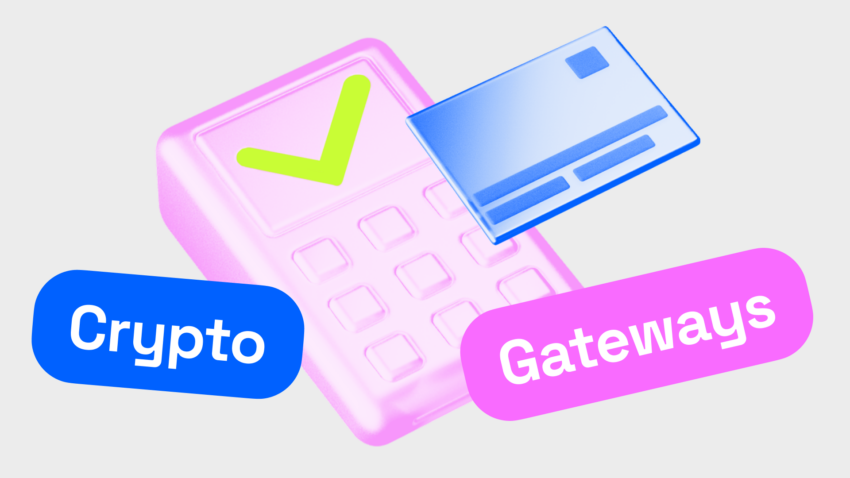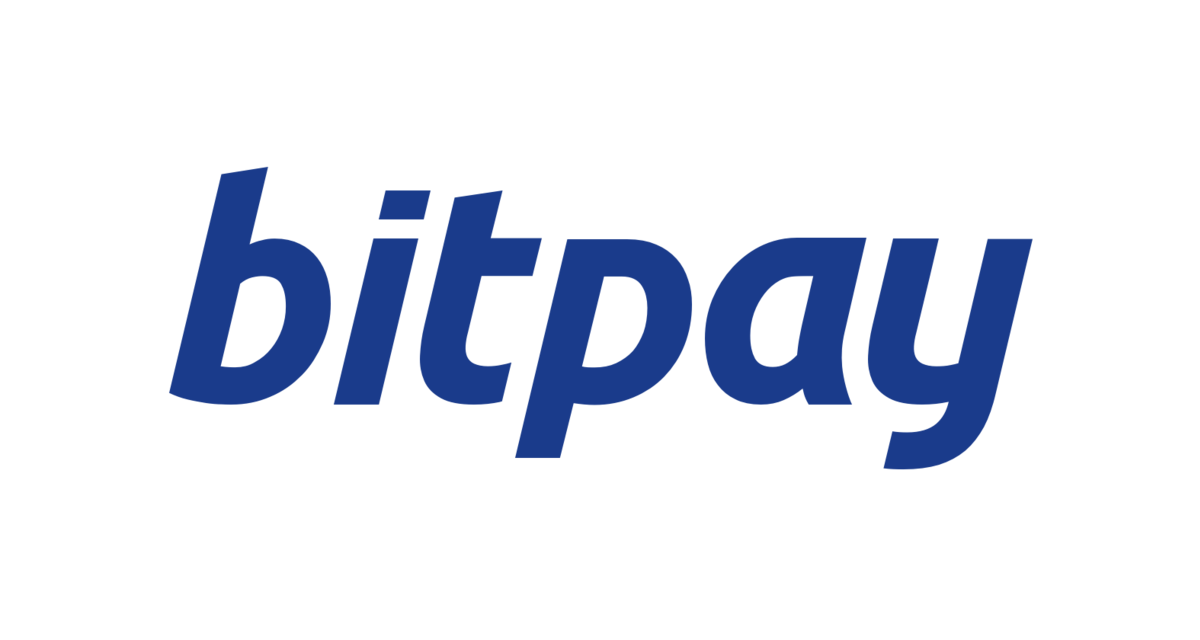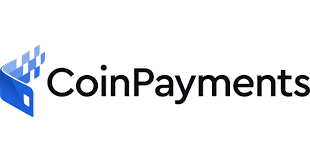A cryptocurrency payment gateway enables businesses to accept digital currencies as payment for goods or services. In addition to providing secure transactions, the right payment gateway can also enhance operations and improve customer satisfaction. This guide covers the best crypto payment gateways in 2025 and highlights what makes them stand out.
KEY TAKEAWAYS
➤ A crypto payment gateway allows businesses to accept digital currencies for goods and services.
➤ Their benefits include secure transactions, lower fees, global access, and faster payment settlements.
➤ Key factors to consider when choosing a gateway include fees, security, integration simplicity, and support for multiple currencies.
➤ Top options include NOWPayments, BitPay, and CoinGate.
- Top 5 crypto payment gateways
- 1. Cryptix
- 2. NOWPayments
- 3. CoinGate
- 4. BitPay
- 5. CoinPayments
- 6. GoCrypto
- Crypto payment gateways compared
- What are crypto payment gateways?
- Features of top crypto payment gateways
- Benefits of crypto payment gateways
- How to select the best crypto payment gateway
- Weigh your options carefully
- Frequently asked questions
Top 5 crypto payment gateways
1. Cryptix
Cryptix supports a wide range of popular cryptocurrencies, which allows businesses to accommodate different customer preferences. It also simplifies crypto-to-fiat conversion by allowing merchants to receive local currencies like USD, EUR, BRL, MXN and COP.
Businesses can accept payments via email, messengers, or through a payment page on their website. The platform promises a 15-minute transaction time. During this period, the fiat-to-crypto rate is locked in to prevent price fluctuations. All transactions go through anti-money laundering (AML) checks to ensure you don’t receive “tainted” crypto.
Cryptix also offers a user-friendly interface for managing payments and features like a merchant dashboard, mass payouts, transaction reports, crypto swaps, and refunds.
- Low transaction fees start from 0.2%.
- Wide selection of supported cryptocurrencies with AML checks
- Auto-conversion to avoid crypto volatility risks.
- Well-documented crypto payments API
- User-friendly dashboard with advanced reporting features
- Network fees may apply to certain cryptocurrency transactions
2. NOWPayments
NOWPayments is a fintech payment services company launched by ChangeNOW. It has a vast suite of tools for both retail users and businesses. Some of these include APIs for your website, custodial services, managing subscriptions paid in crypto, fiat payments, invoices, donations, and Point of Sale (POS) services, to name a few.
Users can purchase over 300 cryptocurrencies at the low fee of 0.5%. Additionally, businesses can accept deposits from customers in more than 20 fiat currencies. NOWPayments is part of a crypto native ecosystem that includes ChangeNOW, NOWNodes, and NOW Wallet. The platform also has strategic partnerships with familiar names like Solana, Polygon, and Avalanche.
- Purchase over 300 cryptocurrencies at low fees.
- Has a wide selection of cryptocurrencies.
- Supports e-commerce, gaming, casinos, trading, charity, and other platforms.
- Earn up to 25% with the affiliates program.
- Crypto payments fees may be higher for businesses
3. CoinGate
CoinGate supports over 70 cryptocurrencies, including popular coins like Bitcoin, Ethereum, Litecoin, and USDT.
With CoinGate, you get a feature-packed dashboard that tracks your business transactions in real time. Additionally, it smoothly integrates with popular e-commerce platforms like Magento and WooCommerce, which further adds to the overall convenience factor.
- 24/7 customer support via email or tickets.
- Instant crypto purchases via card or SWIFT/SEPA transfer.
- Referral program with 1% profit for referrers.
- Easy full and partial refund mechanism.
- Higher transaction fees for high-volume businesses compared to some competitors.
4. BitPay
Launched in 2011, BitPay commands the trust and reliability you expect from a leading payment gateway. It offers secure crypto transactions, a simple checkout process, and support for both online and in-store payments.
Additionally, it supports more than 100 cryptocurrencies, including Lightning Network payments. All payments are irreversible and settled in cash. BitPay also enables integration with platforms like Shopify and QuickBooks.
- BitPay offers QR code invoices for easy payments.
- It locks in exchange rates for stable transactions.
- No fees are charged for low-volume transactions.
- Businesses can integrate BitPay services with ease.
- BitPay's tiered transaction volume limits can be costly for high-volume transactions.
5. CoinPayments
CoinPayments is known for its low-fee transactions and features like fiat-on-off ramps and instant settlements. It also offers CoinPayments offers a multi-coin wallet and supports a mobile point-of-sale (PoS) system.
The platform’s ease of use, along with its comprehensive merchant tools, makes it a practical and convenient choice for businesses of all sizes.
- Low 0.5% transaction fee.
- Instant payment settlements.
- Includes a mobile PoS system.
- Integration with popular eCommerce platforms
- The user interface may be overwhelming for businesses that require only basic features.
6. GoCrypto
GoCrypto supports low-cost, multi-currency transactions, which makes it a practical choice for small and medium-sized businesses.
Its ability to handle both online and in-store payments provides flexibility, and the platform offers quick settlements. Additionally, GoCrypto allows easy crypto-to-fiat conversions, which helps merchants manage liquidity without dealing with crypto’s inherent volatility.
- Offers smart PoS solutions encompassing crypto, card, and digital payments
- The dashboard includes a free analytical tool to keep track of all transactions and corresponding details
- Crypto-to-fiat conversion available
- Instant payment settlements
- It may require additional integration steps for certain eCommerce platforms
Crypto payment gateways compared
| Payment gateway | Supported currencies | Fees | Key features |
| Cryptix | Multiple popular cryptos | 0.2% | Auto-conversion, AML checks, feature-packed merchant dashboard, smart PoS, instant settlements, crypto-to-fiat conversion |
| NOWPayments | 300+ | 0.5% | Supports POS services, APIs, custodial services, crypto purchases, subscriptions and donations |
| CoinGate | 70+ | 1% | Easy integration, fiat conversion, real-time tracking |
| BitPay | 100+ | 1% | QR code invoicing, no fees for low-volume, Shopify integration |
| CoinPayments | Multiple popular cryptocurrencies | 0.5% | Multi-currency, mobile PoS, instant settlements |
| GoCrypto | 50+ | 0.5% | Crypto-to-fiat conversion, smart PoS, instant settlements |
Businesses that adopt crypto payments can reduce operational costs and expand their reach to a growing base of cryptocurrency users.
What are crypto payment gateways?
Crypto payment gateways are platforms that allow businesses to accept payments in various cryptocurrencies, such as Bitcoin or stablecoins.
They provide an interface between the customer and the blockchain network, which makes it easy for businesses to integrate crypto transactions into their existing payment systems.
These gateways handle blockchain payment processing and ensure that transactions are secure, fast, and efficient. Additionally, many of these gateways offer crypto-to-fiat conversion services so businesses can avoid the volatility of digital assets.
While crypto business payments are still considered niche, more businesses are warming up to the idea of accepting Bitcoin and other major cryptocurrencies. For perspective, our comprehensive guide on businesses accepting Bitcoin in 2024 highlights the growing trend.
According to an FMI study, the global crypto payment gateways market is projected to grow significantly, with a CAGR of 14.1% from 2023 to 2033. That’s an increase from $1.3 billion in 2023 to $4.9 billion in 2033.
Features of top crypto payment gateways
Ideally, you should look for the following features while choosing a payment gateway:
- Multi-currency support: The best options allow businesses to accept a wide range of cryptocurrencies, from popular ones like Bitcoin to niche altcoins.
- Automated crypto-to-fiat conversion: Top gateways usually offer instant auto-conversion services so businesses can receive payments in their preferred currency. This greatly reduces exposure to market volatility.
- Customizable transaction speed options: These gateways support transaction speed tiers so you can prioritize speed or cost depending on the type of transaction. This ability allows you to balance cost efficiency for high-volume, low-priority payments.
- Advanced fraud detection: Almost all top gateways have built-in, real-time fraud monitoring tools, multi-factor authentication, and whitelisting capabilities. These extra layers of security help protect your business from unauthorized transactions without compromising the user experience.
- Flexible fee structures: Most top gateways support tiered pricing that adapts to your business size or transaction volume. This flexibility allows you to access lower fees as your payment volume increases.
Benefits of crypto payment gateways

1. Global reach
Crypto payment gateways enable businesses to easily accept cryptocurrency payments from customers worldwide, regardless of their location or currency. This expanded market access can significantly boost sales and revenue.
2. Reduced transaction fees
Crypto payment gateways often offer lower transaction fees than traditional payment systems. The lower transaction fees can reduce operational costs and improve profitability.
3. Decentralization
Unlike traditional payment systems that rely on intermediaries, crypto payment gateways operate on decentralized networks. This reduces the risk of censorship. Among other perks, the lack of censorship ensures businesses have greater control over their transactions and can avoid potential disruptions.
4. Enhanced security
The distributed nature of the blockchain means there’s no single point of failure. This makes it difficult for hackers to manipulate the network or tamper with transactions. Additionally, the cryptographic algorithms ensure that data within the blockchain remain secure.
5. Faster settlements
Crypto transactions are typically processed much faster than traditional bank transfers, which means businesses receive payments almost instantly. Expedited transactions generally improve cash flow, enhance liquidity, and enable quicker decision-making.
6. Increased customer satisfaction
Many customers appreciate the convenience and speed of crypto payments. Businesses can improve customer satisfaction and loyalty and potentially attract new customers by offering this option.
7. Future-proofing
Cryptocurrencies are part of a growing industry and represent a new, decentralized financial era. Businesses can stay ahead of the curve by integrating crypto payment gateways to tap into new customer bases.
How to select the best crypto payment gateway
So, how can a business choose the best crypto payment gateways for its specific needs? Here are a few things to consider.
1. Assess your needs
- Determine the cryptocurrencies you want to accept.
- Estimate your expected transaction volume.
- Identify the level of security and fraud protection required.
- Consider your technical capabilities and integration preferences.
2. Compare fees and costs
- Research different crypto payment gateways, including the ones listed above, and compare their fee structures.
- Look for options with low transaction fees, especially if you’re dealing with high transaction volumes.
- Consider any additional costs, such as setup fees or monthly subscriptions.
3. Check multi-currency support
- Ideally, you should choose a gateway that offers multi-currency support. This way, you can attract customers from various regions with different native currencies.
- Multi-currency support can also help you avoid currency conversion fees, as you will be accepting payments directly in the customer’s preferred currency.
4. Prioritize security
- Look for gateways with advanced encryption and fraud prevention measures. This will protect your business and customers from potential security breaches.
- Consider the gateway’s reputation for security and its compliance with industry standards.
5. Assess ease of integration
- Choose a gateway that integrates smoothly with your existing payment system and/or eCommerce platform.
- The best way to go about this is to find a platform that offers plugins or APIs to simplify the integration process.
6. Evaluate customer support
- Look into the quality of the gateway’s support services by reviewing user feedback and discussions on social media.
- Consider factors like response time, availability, and the quality of support provided.
7. Compare scalability and additional features
- Evaluate any additional features that might be important to your business, such as invoicing, reporting, or analytics tools.
- If your business is growing or you anticipate future expansion, look for a gateway that can handle increased transaction volume and complexity.
Weigh your options carefully
Businesses that adopt crypto payments can tap into emerging markets and attract new customers. Each payment gateway we have highlighted in this guide offers a range of features that make crypto payment integration secure and cost-effective for businesses.
That said, make sure to assess each provider’s fee structure and service reliability in your region. Additionally, ensure that the gateway integrates well with your existing payment systems for a smooth transition.
Frequently asked questions
What is a cryptocurrency payment processor?
Which crypto is best for payment?
Can I convert crypto to fiat using a payment processor?
How secure are crypto payment gateways?
Do crypto payment platforms support multiple currencies?
Disclaimer
In line with the Trust Project guidelines, the educational content on this website is offered in good faith and for general information purposes only. BeInCrypto prioritizes providing high-quality information, taking the time to research and create informative content for readers. While partners may reward the company with commissions for placements in articles, these commissions do not influence the unbiased, honest, and helpful content creation process. Any action taken by the reader based on this information is strictly at their own risk. Please note that our Terms and Conditions, Privacy Policy, and Disclaimers have been updated.










